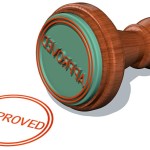Occupational licensing requirements are usually regarded as a government-mandated safety net that protects consumers of services from low-quality service. Not coincidentally, though, the greatest advocates of such requirements are those with incumbent positions in those fields, who have an interest in excluding competition.
Currently, a doctor who has been enrolled in medical school for a number of years, but still lacks a license, is not legally allowed to even provide the services of stitching a wound to a patient. This of course forces people to only employ fully licensed doctors, reducing the supply of labor in the medical field, and allowing higher prices to be charged for the services of the doctors.
Many advocates of licensing requirements make the argument that without these mandates, incompetent people would be providing services, and the consumer would be helplessly subject to dangerously low-quality or even life-threatening service. However, this argument falls apart when confronted with the fact that people do not obtain their assurance directly from the provider of the good or service. Instead, we as consumers get our assurance from a third party in virtually all instances.
For example, if I buy a shirt from Target, I likely do not know the qualifications of the men who made the shirt. I do, however, expect that Target would not sell me a poorly made-shirt, because that would hurt their reputation as a business and ultimately their bottom line. Thus the third party I am depending on here is the market itself. The same incentive applies with any type of goods or services. I don’t necessarily need to know the qualifications of my doctor when I go to a clinic such as Patient First. It is enough to know that Patient First has a strong incentive to provide me with a competent doctor.
Further, private organizations already exist which are dedicated to judging goods and services for the benefit of consumers; the information they provide could replace that provided by a license, without the drawbacks of licensing. The Consumer’s Union, best known as the publisher of Consumer Reports, is one example, while Underwriters Laboratories is another private organization which provides safety certifications for a variety of electrical products.
Another way of looking at the licensing mandate is from the perspective of somebody in need of a more serious or complicated form of a service. In the medical field, brain or heart surgery would be an example. It may not be as controversial for someone to let an unlicensed physician to stitch up their finger, but it certainly would be to let one perform a serious operation on them. We have to remember, though, that it is entirely the choice of the consumer to hire an unlicensed physician for such an operation, and in some circumstances this would be the best choice available to them. Should a person be in need of a more complex operation and not be able to afford a fully licensed physician, then hiring an unlicensed physician would be better than going untreated. Further, not being able to afford the highest standard of care would be a much a rarer problem if the licensing mandate were lifted, due to the increase in the supply of labor and overall decrease in prices.
Simply put, the licensing mandate only restricts the options available to a needy consumer. Some might say that if that person makes a bad decision and is harmed by the services of the unlicensed doctor, society must pay for it through some government-funded medical program, and therefore it should be illegal to make that decision. However, that could just as well be used as an argument for eliminating government healthcare programs, as they provide an incentive for restricting individual choices. Eliminating licensing, on the other hand, would not only drive down prices but provide the appropriate respect to the judgments of individuals.
Image credit to healthandwelfare.idaho.gov.
